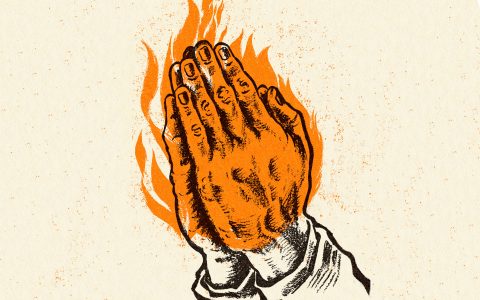New Jersey residents may be forgiven if they failed to cheer last week’s news of a “grand agreement” among legislators on a bill to legalize the adult use of cannabis. They’ve heard it all before.
It’s been widely reported on these pages and elsewhere that Gov. Phil Murphy made a campaign promise to legalize cannabis within 100 days of his swearing-in. After eight years of Chris Christie’s reefer madness, it was a message that many in the state wanted to hear.
Ken Wolski, director, Coalition for Medical Marijuana of NJ
But enacting legalization isn’t as easy as proposing it. Lawmaking can be rough, slow, frustrating work. And 100 days is a pretty tight time frame.
“That’s been the frustration since Murphy’s election. We’ve felt so close for so long that it’s starting to sound like a contradiction,” said Scott Rudder, president of the New Jersey Cannabusiness Association. “And so now we finally have an agreement in principle on tough issues like regulation and taxation. Then we must convince a majority to support it. So we’re closer than we’ve ever been. Again.”
Breakthrough: Tax The Weight, Not The Price
After surviving the committee process, New Jersey’s adult use bill, S2703/A4497, the “New Jersey Cannabis Regulatory and Expungement Aid Modernization Act” stalled while legislators and would-be gatekeepers turned “agreements in principle” into actual improvements to the bill.
It was a big deal when legislators finally settled on a tax rate. Gov. Murphy proposed a 25% tax on all recreational sales. His fellow Democrats, who control the New Jersey General Assembly, balked. Too high, they said. So they scrapped the sales tax in favor of a tax by weight, which would be set at $42 per ounce. The compromise allows both sides to save face and, in theory, provides New Jersey with a more stable revenue steam, one that doesn’t depend on the fluctuating price point of cannabis.
Looking For Legal Cannabis? Leafly Has All Your Local Menus
Rough Start For Gov. Murphy
That agreement will help the bill get back on track. But other political forces are also at play. Between a protracted budget stalemate and a #MeToo scandal that rocked Trenton, Gov. Murphy’s agenda lost momentum over the past six weeks.
Fortunately for legalization advocates, the bill doesn’t live or die on Murphy’s support alone. “The general consensus among legislative and community leaders is that this is inevitable,” Rudder told Leafly. “Cannabis legalization will probably happen within the next few weeks.”
Murphy says he’s eager to sign the bill and fulfill a major campaign promise.
“Governor Murphy remains committed to legalizing adult-use marijuana, a critical step in eliminating racial disparities in our criminal justice system,” Alyana Alfaro, Murphy’s deputy press secretary, told Leafly. “The Governor is committed to working with the Legislature to legalize adult-use marijuana the right way, one that makes the state fairer, prioritizes the safety of New Jersey residents, and ensures that some of the economic benefits go to the communities hardest hit by the war on drugs.
Too Much In One Bill?
Ken Wolski runs the Coalition for Medical Marijuana of NJ. He suggests politicians aren’t solely to blame for the holdup in New Jersey, where public support for legalization is at 62% (and rising).
“The lack of progress is because too many people want too many things from marijuana legalization—taxes, home cultivation, automatic expungement, industry representation, inner city reparations,” Wolski told Leafly. “We won’t undo decades of drug war excesses in a single piece of legislation. I say just get it done. Pass the adult use bill into law, even if it’s not perfect. Marijuana reform is incremental and has been going on for decades.”
No one fought harder or longer to reform NJ’s broken pot laws than Wolski, a venerable, affable, sweater-vested presence in New Jersey’s halls of power. He noted that progress in New Jersey would immediately influence neighboring states like New York and Pennsylvania.
“A legalization law that is less than perfect simply means there is more work to do,” Wolski added.
Expungement: A Massive Project
Much of that work involves clearing the criminal records of an estimated one million New Jersey residents who might be eligible for the expungement of past cannabis convictions.
That would go far towards achieving Murphy’s restorative justice goals. But New Jersey’s criminal justice system is not designed to accommodate a crush of automatic expungements.
As NJ.com recently noted the expungement system would be overwhelmed and called it “looming disaster”.
All Parties On Board
Now the Legislature, led by Senate President Steve Sweeney, must find a way to “avoid a crisis” said Dianna Houenou, policy council for ACLU-NJ.
“This is a very complicated knot that needs to be untangled,” Houenou said. “The legislature has to figure this out quickly because the current expungement system is unsuitable for the tens, and hundreds of thousands of petitions” that are sure to come.
It won’t be easy, but Houenou remains optimistic, because both the courts and State Police are “on board with something that’s workable and feasible for expunging these cannabis offenses.”
If legislators don’t sort out expungement, the whole deal might fall apart. That would be a tremendous setback for legalization efforts and also for the state’s medical program.
Looking For Legal Cannabis? Leafly Has All Your Local Menus
MMJ Improvements Coming Too
The legislation to legalize cannabis (S2703) is currently packaged with another bill (S10) that would dramatically improve New Jersey’s long-languishing medical cannabis program.
Republican state Sen. Declan O’Scanlon co-sponsored S10. His bill ramps down the sales tax and eliminates the requirement that all patients recertify their qualifying condition every 30-, 60-, or 90 days. That onerous regulation, a vestige of the Chris Christie era, would be scrapped in favor of one annual visit.
O’Scanlon is worried that medical cannabis users will suffer unnecessarily if the adult-use deal goes south.
“Now that we have another purported deal there won’t be the momentum to do the work (to fix medical),” O’Scanlon told Leafly. “The clock of frustration will restart in most people’s minds. Let’s see what happens when (Democratic leaders) start wrangling votes. If that effort falters we need to be all over the opening to push medical.”
We Got This, Says Vitale
But patients should rest easy, says state Sen. Joe Vitale, O’Scanlon’s co-sponsor on S10.
“The bill to legalize recreational cannabis is moving and close to an agreement on outstanding elements,” Vitale told Leafly. “And S10 will move to a full vote at the same time.”
Win or lose, the battle for reform goes on in a state were very few lawmakers support the right of individuals to grow cannabis at home. And for now, there are still only six medical dispensaries serving the entire state, much to the chagrin of Aubrey Navarro-Conway, a long-time advocate for patients’ rights.
She said tying medical cannabis reform to the much more complicated adult-use debate “put the patient community in a chokehold similar to what we witnessed under the former administration.”
Ouch.
Still Needed: More Access, Lower Prices
“Residents in huge gaps of the state—specifically Monmouth and Ocean counties—still travel over an hour for access to their medication,” Navarro-Conway told Leafly. “Yet we are adding two dispensaries to the same stretch of boardwalk in Atlantic City?”
Brandon Chewey founded Jersey Shore Cannabis Network. He’s vowed to fight until patients in New Jersey can grow their own cannabis. Chewey lamented the scarcity of opportunity in this booming industry for anyone previously ensnared by the war on drugs.
He also noted that $520 for an ounce of cannabis remains cost-prohibitive for many of the state’s 40,000 registered medical cannabis patients.
“When you prohibit something that is beneficial you’re creating a black market,” Mr Chewey told Leafly. “A black market is currently thriving in New Jersey because the price for medical cannabis is simply too high, especially for terminally ill patients that are on a fixed income.“






